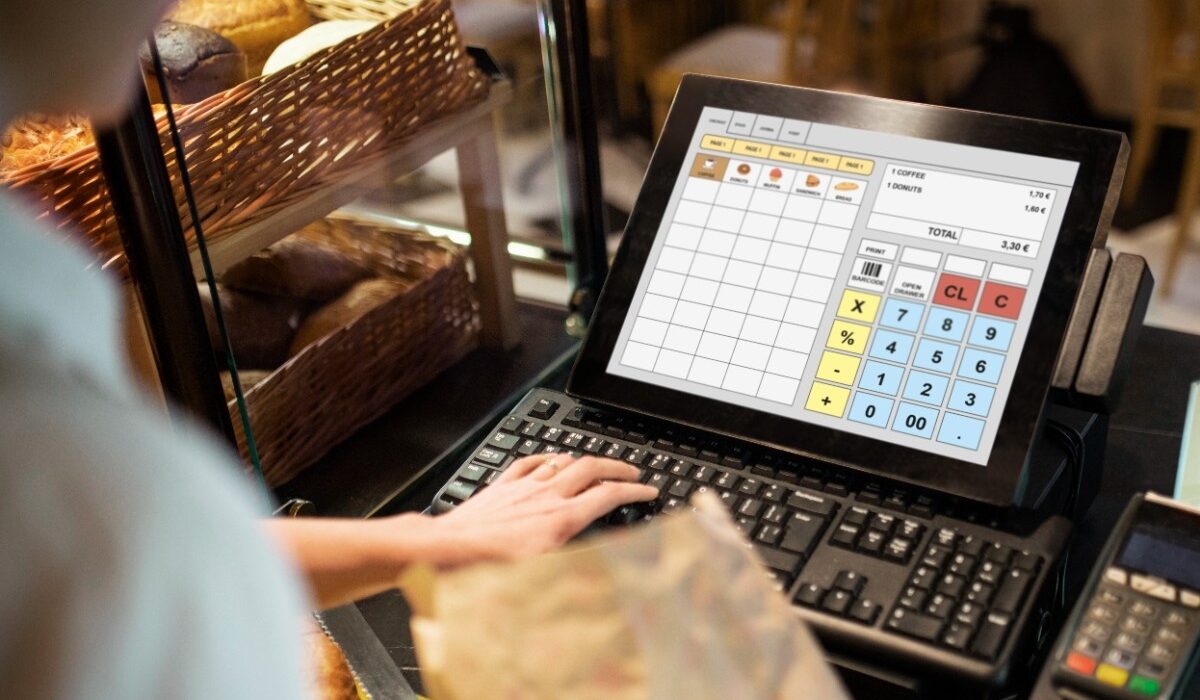Running a small office catering business in 2025 is exciting but challenging. You juggle orders, deliveries, and payments while keeping clients happy. A Point of Sale (POS) system can make this easier by streamlining tasks like order processing, inventory tracking, and customer management. But with so many options, how do you pick the best POS system for your small office catering business? This guide breaks it down into simple steps, helping you choose a system that fits your needs, budget, and growth plans. We’ll cover key features, costs, and tips to ensure you get the most value.
Why a POS System Matters for Office Catering
A POS system is more than just a cash register. It’s a tool that helps you manage orders, track inventory, process payments, and analyze sales. For small office catering businesses, a good POS can save time, reduce errors, and improve customer satisfaction. For example, it can handle bulk lunch orders for a corporate office or track dietary preferences for a team meeting. Unlike general retail POS systems, an Office Catering POS Solution needs features tailored to catering, like menu customization and delivery scheduling.
Key Features to Look for in a Catering POS
When choosing a POS system, focus on features that match your business needs. Here are the must-haves for office catering:
- Order Management: Look for a system that handles bulk orders, custom menus, and special requests like gluten-free or vegan options. This ensures you meet client needs without mistakes.
- Delivery Tracking: Choose a POS with tools to schedule deliveries and track drivers, so meals arrive on time at office locations.
- Inventory Management: Pick a system that tracks ingredients in real-time to avoid running out during busy lunch rushes.
- Payment Flexibility: Ensure the POS supports contactless payments like Apple Pay, credit cards, and invoicing for corporate clients.
- Reporting Tools: Select a POS with sales reports to see which menu items are popular and plan better for future orders.
- Integration: Look for systems that connect with online ordering platforms, accounting software, or CRM tools to streamline operations.
For example, a POS like Toast or Square offers these features and is user-friendly for small businesses. Check if the system supports add-ons like loyalty programs for repeat office clients.
Budgeting for Your POS System
Cost is a big factor for small businesses. POS systems vary in price, so here’s what to expect:
- Upfront Costs: Hardware like tablets or card readers can cost $200-$1,000. Cloud-based systems may only need a tablet you already own.
- Monthly Fees: Software subscriptions range from $50-$200 per month, depending on features. Some systems, like Square, charge per transaction (e.g., 2.6% + 10¢).
- Hidden Costs: Watch for setup fees, training costs, or charges for extra users. Ask providers for a full cost breakdown.
Compare at least three systems to find one that fits your budget. For example, Square is affordable for startups, while Toast offers advanced features for growing caterers.
Cloud-Based vs. On-Premise POS Systems
POS systems come in two types: cloud-based and on-premise. Cloud-based systems, like Clover or Lightspeed, store data online, letting you access it from anywhere. They’re ideal for small catering businesses because they’re easy to set up, update automatically, and cost less upfront. On-premise systems require local servers and are pricier, better suited for large operations. For most small office caterers, a cloud-based School Cafeteria POS Solution can also work, as it shares similar needs like bulk order processing and menu flexibility.
Steps to Choose the Right POS System
- Assess Your Needs: List your business requirements, like handling 50 daily office orders or tracking delivery routes.
- Research Options: Compare systems like Toast, Square, Clover, or TouchBistro based on features, cost, and user reviews.
- Test the System: Request a free demo or trial to see if the interface is easy for you and your staff.
- Check Support: Choose a provider with 24/7 customer support to fix issues fast during busy catering hours.
- Plan for Growth: Pick a system that scales with your business, adding features like multi-location support as you expand.
Common Mistakes to Avoid
- Choosing Based on Price Alone: A cheap POS might lack key features like inventory tracking, costing you time later.
- Ignoring Staff Training: Pick a system with an easy interface to reduce training time for your team.
- Skipping Integration: Ensure the POS works with your existing tools, like QuickBooks or online ordering apps.
- Overlooking Scalability: Avoid systems that can’t grow with your business, like adding new menu items or locations.
Top POS Systems for Office Catering in 2025
Here are three popular POS systems for small office catering businesses:
- Toast POS: Great for catering with delivery tracking, menu customization, and robust reporting. Starts at $69/month.
- Square POS: Budget-friendly with no monthly fees, ideal for startups. Offers simple order and payment processing.
- Clover POS: Flexible with add-ons for loyalty programs and inventory. Pricing starts at $14.95/month plus hardware.
Check user reviews on sites like Capterra or G2 to see which system fits your needs best.
How to Get Started
Ready to pick a POS system? Start by listing your top priorities, like cost or delivery features. Contact providers for demos and ask about setup support. Train your staff to use the system smoothly, and test it with small orders before a big catering event. A good POS can save you hours each week, letting you focus on delicious food and happy clients.
FAQs About Choosing a POS System for Office Catering
Q: Can I use a retail POS for office catering?
A: Retail POS systems work for basic sales but lack catering-specific features like bulk order management or delivery tracking.
Q: How long does it take to set up a POS system?
A: Cloud-based systems can be set up in a day or two. On-premise systems may take a week, including hardware installation.
Q: Do I need internet for a cloud-based POS?
A: Yes, cloud-based POS systems need a stable internet connection, but some offer offline modes for basic functions.
Q: Can a POS system handle corporate invoicing?
A: Yes, systems like Toast and Clover support invoicing for corporate clients, with options to set payment terms.
Q: Are there POS systems for very small catering businesses?
A: Square and Clover offer affordable plans for startups, with no monthly fees or low-cost hardware options.





